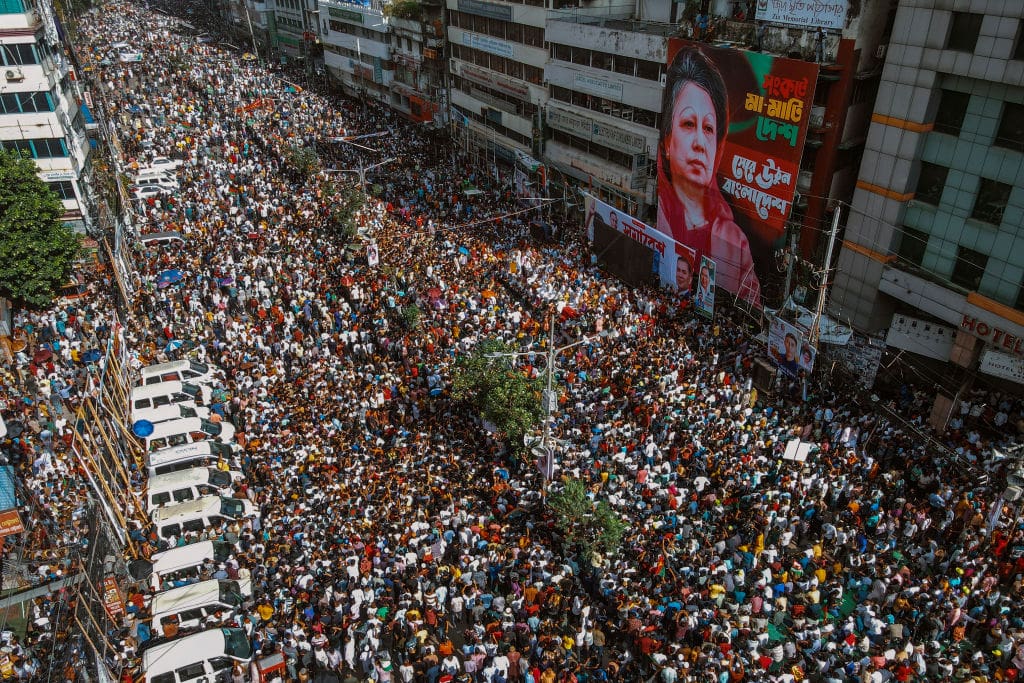The Cyber Security Act 2023 (CSA) is the latest in a series of successive legislation that has repeatedly facilitated the state’s ongoing crackdown on peaceful dissent and the right to freedom of expression in Bangladesh. The stated aim of the CSA is to ensure cyber security and criminalize offenses which are committed through digital or electronics means. It replaces the controversial Digital Security Act 2018 (DSA) which had been enacted in 2018 with the same purported objective but had instead been used as an instrument of harassment by the ruling party and its affiliates to stifle peaceful dissent. Similarly, the DSA had repealed and replaced an earlier controversial provision, namely Section 57 of the Information and Communications Technology (ICT) Act 2006, which criminalized the publication of ‘fake, obscene, or defamatory information’ in electronic form and was systematically used to gag dissent. The successive enactment of these repressive laws has been accompanied by the misuse of the criminal justice system to target and prosecute those peacefully exercising their right to freedom of expression. This epitomizes the lawfare (i.e. legal warfare) that the government of Bangladesh has launched against dissent in the past decade, especially targeting journalists, human rights defenders, activists, critics and dissidents.
Amnesty International is concerned that the CSA repackages almost all repressive features of the DSA (and Section 57 of the ICT Act that preceded it) and marks a continuation of the state’s clampdown on civic space and human rights, particularly the right to freedom of expression in Bangladesh.
This briefing primarily draws on legislative analysis of the CSA and DSA and 20 interviews conducted with a range of stakeholders, including former detainees, their relatives, their lawyers as well as journalists and human rights defenders in Bangladesh. This briefing argues that although the government of Bangladesh has presented the CSA as a major reform, it is essentially the same piece of legislation as the DSA, with some minor amendments. In June 2022, the Office of the United Nations High Commissioner for Human Rights (OHCHR) issued a technical note to the Government of Bangladesh providing nine specific recommendations on reforming the DSA to bring it in conformity with international human rights law.
Amnesty International’s analysis shows that the Government of Bangladesh has only implemented one of the nine recommendations of the OHCHR in the CSA; it has partially implemented three recommendations, while the remaining five recommendations have been completely ignored in the CSA. Further, Amnesty International’s legislative analysis has found that the CSA retains 58 of the 62 provisions of the DSA: 28 provisions are retained verbatim; 25 provisions are retained with minor changes (such as related to sentencing or terminological alterations) and five provisions are retained with some procedural amendments. The CSA only introduces one new provision, which is an offense for filing false cases. Therefore, 58 of the 59 provisions in the CSA were inherited from the DSA, either verbatim or with minor changes or procedural alterations.
Amnesty International’s legislative analysis also found that the government made changes to 16 sections in the final version of the CSA enacted in September 2023, compared to the draft version which was published for public feedback in August 2023. Only two of these changes were substantive, while the remaining changes were minor terminological or procedural alterations. Therefore, Amnesty International believes that the call for feedback on the CSA draft was a mere tick box exercise, as substantial recommendations made by civil society were completely ignored.
Read “Repackaging Repression: The Cyber Security Act and the Continuing Lawfare Against Dissent in Bangladesh.”

